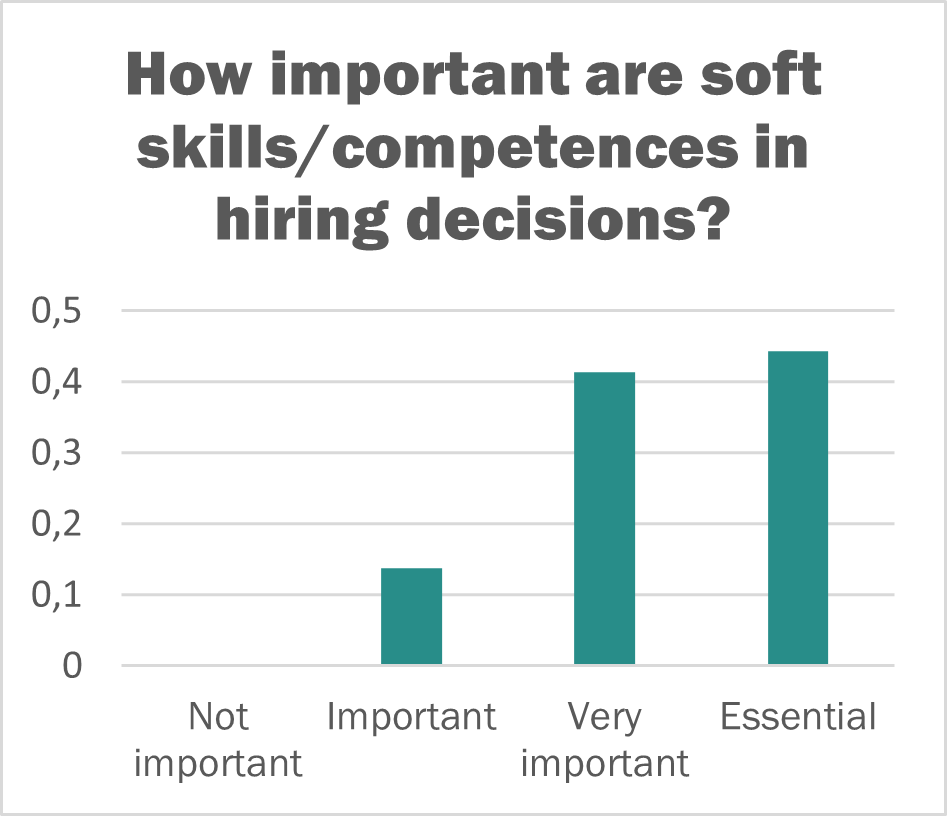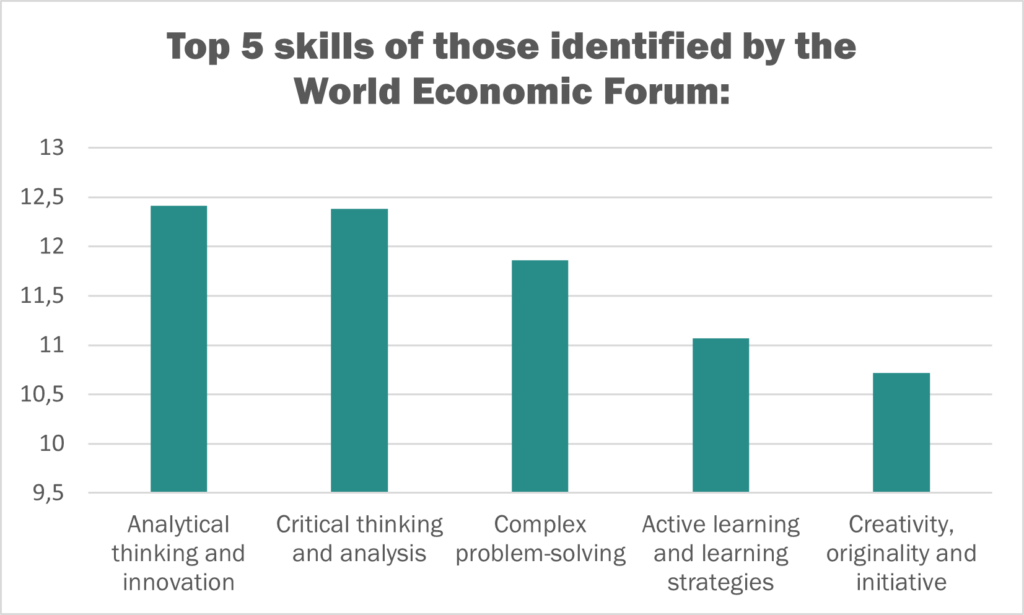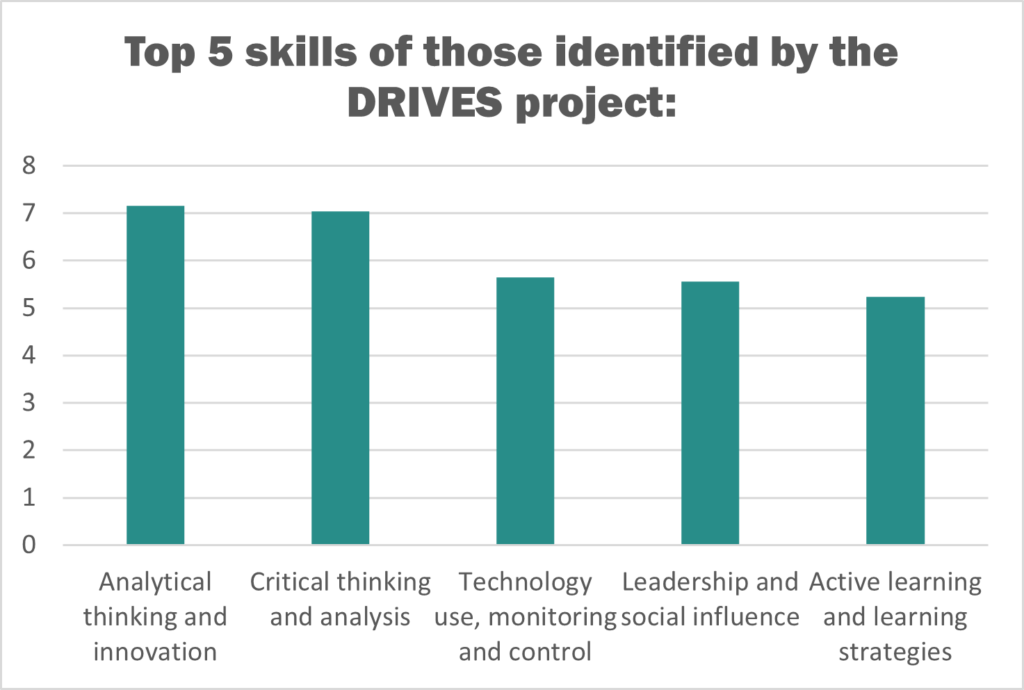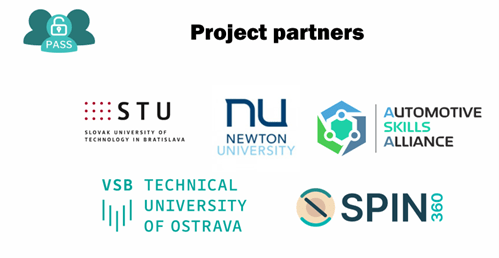Key Competences – defined as a mix of skills, knowledge and attitudes, are increasingly important also in the automotive and mobility ecosystem. Due to their transferable nature, they are considered important in the current economy, with a rapidly changing labour market which leads to skills gaps in crucial sectors.
In order to address this problem the ASA cooperates with international partners on the project PASS (Project for the Assessment and Support of Key Skills/Competences). In April and May 2023, the project partners carried out a stakeholder survey on key competences, their desirability, assessment and support. The results indicate that key competences are important both for hiring decisions and in the quality of work, yet few organisations are actively assessing or supporting them. The survey also identified the most important key competences for the stakeholders.
Although all of the respondents consider soft skills important when making hiring decisions (most consider them “Essential”), only 57% of the answers indicated they invest resources in assessing or developing soft skills, and only 22% work with specific definitions and models of assessment of the desired competences.

Of the 40 respondents of the survey, the majority were companies, followed by universities, VET providers and industrial associations. The majority (69%) indicated they are experiencing skills gaps due to the green and digital transitions. Those who do not experience skills gaps at the moment, expect to experience them within the next 5 years.
The overwhelming majority (93% of respondents) believe soft skills and competences have a significant impact on the quality of job performance. The largest benefit of key competences seems to be their transferability. Almost 65% believe that employees who possess good soft skills and competences are more easily placed into different work tasks. Therefore, key competences are especially important in face of rapidly changing tasks and the associated skills needs in the automotive sector. Some believe individuals with a good level of key competences are also more likely to retain rewarding employment or advance in their career
Of the most important anticipated skills identified by the World Economic Forum, participants in our survey ranked their importance in this order:
- Analytical thinking and innovation
- Critical thinking and analysis
- Complex problem-solving
- Active learning and learning strategies
- Creativity, originality and initiative
- Leadership and social influence
- Resilience, stress tolerance and flexibility
- Emotional intelligence
- Reasoning, problem solving and ideation
- Technology use, monitoring and control
- Technology design and programming
- Troubleshooting and user experience
- Service orientation
- Systems analysis and evaluation
- Persuasion and negotiation

Further, participants had the chance to rank the skills desirable in the automotive sector specifically, as identified by the project DRIVES. The ranking is:
- Analytical thinking and innovation
- Critical thinking and analysis
- Technology use, monitoring and control
- Leadership and social influence
- Active learning and learning strategies
- Complex problem-solving
- Reasoning, problem-solving and ideation
- Quality control and safety awareness
- Persuasion and negotiation

Respondents were also asked which methods of assessment they consider effective. The most effective methods are considered to be Multi-faceted feedback (conducted by multiple evaluators with different visions), Observation, and Verification of knowledge and skills. Over 40% of the respondents also consider self-assessments to be effective.
Project PASS will follow-up on the results of the survey through national and international workshops in the month of June. The final objectives of the project include developing models of assessment and piloting them on over 100 individuals, while training Key Competence assessors.
- Background:
Project PASS is an Erasmus+ project co-funded by the European Union, launched in 2022 by partners in Belgium, the Czech Republic, Italy and Slovakia. The project partners include 3 educational institutions (Newton University in Prague, VSB-TUO in Ostrava and Slovak University of Technology in Bratislava), the sustainability think tank SPIN 360 from Milan and the Pact for Skills partnership organisation for the automotive sector – the Automotive Skills Alliance. The objectives of the project include developing models of assessment, testing them through pilot assessments, while training qualified assessors. These activities aim to provide a blueprint for sustainable approaches for the ecosystem based on best practices gathered throughout the project. For more information, visit the project website: https://project-key-competence.eu/


